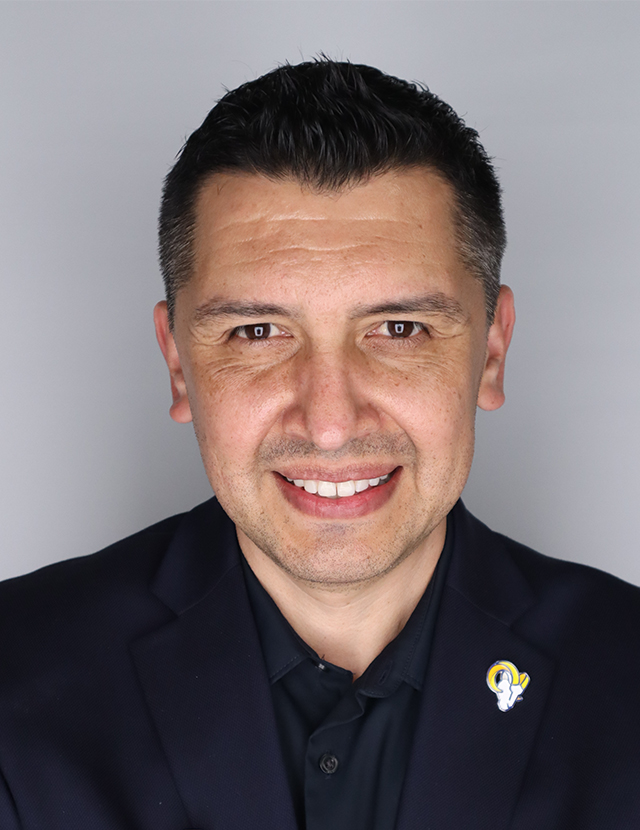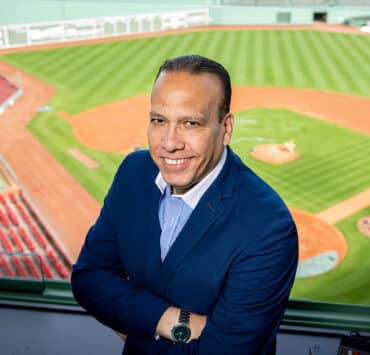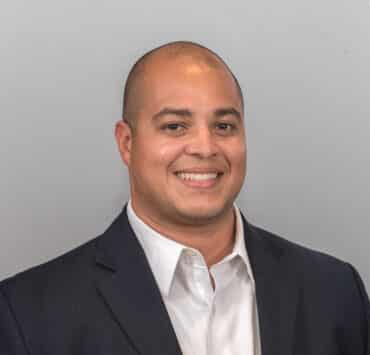|
Getting your Trinity Audio player ready...
|
When Oracio Galindo first stepped on campus as a first-generation student at Loyola Marymount, he initially struggled to find his footing. He went from graduating at the top of his class at a predominately Latino high school to navigating a system that no one in his family understood.
While those early college experiences exposed him to his love for HR, Galindo says it was a challenge to identify who he was and how he could contribute outside the classroom.
“The first year was rough,” he says. “Since my parents didn’t go to school past the fourth grade, I was starting a new journey with not a lot of guidance.”
Things started to improve as he met fellow Latinos and mentors through student-driven organizations, one of which he eventually become a copresident of in his senior year as a way to help new students deal with the challenges he had faced. That tendency to pay it forward is one that stuck with Galindo through his professional career and that makes him the head of employee experience he is today at the Los Angeles Rams.
“We’re in an industry that’s historically male-dominated, and we want to make sure our programs and policies are welcoming to our female employees.”
Oracio Galindo
“I had awesome mentors interested in understanding who I was as an individual and who helped me grow. I really value that type of connection,” he says. “As one of the youngest clubs in the NFL, my role at the Rams has been about providing HR guidance to our young and very driven staff while we grow and scale the overall business. My hope is that we continue to develop future leaders for the industry.”
Making that hope a reality has been a focus since coming to the organization in 2016 after working in HR functions for the likes of the Los Angeles Times, Starbucks, Red Bull, and Universal Music.
In addition to offering a tuition reimbursement program and providing access to professional coaching for all employees, Galindo and his colleagues have set their sights on preparing tomorrow’s leaders through a company-wide leadership needs assessment. They received feedback from leaders about what they need to improve and surveyed employees on what their supervisors could work on as well. The assessment results were used to develop a number of training and development sessions, including a robust three-day program where leaders were equipped with tools to better motivate, develop, and engage their teams.
Access and equity have also been important considerations for the programs and strategies Galindo crafts in his role.

“We’re in an industry that’s historically male-dominated, and we want to make sure our programs and policies are welcoming to our female employees,” he explains. “That’s why we revamped our maternity leave policy to include three months of fully paid benefits. We also introduced six weeks of paid time off for non-birthing parents.”
His expertise and leadership within HR don’t go unnoticed. “Oracio is one of those rare human resource leaders who truly embodies both the ‘human’ AND ‘resource’ aspects,” says Joe Jotkowitz, managing partner at the Executive Advisory. “His approach takes into account the people element ensuring he is understanding and inclusive while also being incredibly innovative and practical when moving organizations forward. The Los Angeles Rams are truly fortunate to have him.”
Galindo started his career as an HR generalist at Universal Music Group, where he was the contact for over eight hundred employees in recruitment and employee relations. From there he worked in a variety of roles at the Los Angeles Times, where he says he grew up professionally.
“Early on in your career you think you know everything, but we all have blind spots,” he says. “Along the way, mentors provided me with the safe space to take risks and to learn from my experiences, whether good or bad. As I assumed leadership roles, I set out to do what they did for me: to give others the opportunity to grow their confidence and allow them to develop professionally.”
“As I assumed leadership roles, I set out to do what they did for me: to give others the opportunity to grow their confidence and allow them to develop professionally.”
Oracio Galindo
Galindo went on to lead teams at the Times, Starbucks, Sony Music, and Red Bull, experiences that prepared him to lead at an organization like the Rams.
“Coming from large corporations, I learned the value of consistency, process, discipline, and structure,” he explains. “What I’ve aimed to do is apply a level of structure and systems while maintaining elements important to our unique culture, such as the flexibility to grow and innovate.”
Galindo advises young people to take time to connect and build relationships.
“The younger workforce will be leaders of tomorrow that will carry their own sets of values and approaches, but the importance of building a network is timeless. Developing relationships amongst each other and with experienced colleagues will help them grow collectively,” he says. “Additionally, young leaders shouldn’t be afraid of change. The times that I’ve grown the most were in moments of change. It can be uncomfortable and even scary, but those feelings are indications that you’re learning.”

